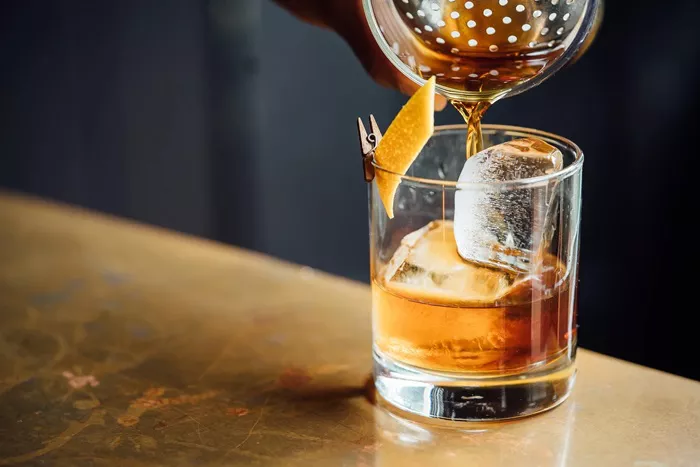From classic cocktails to sophisticated sipping experiences, the world of spirits is diverse and captivating. In this exploration, we delve into the intriguing realm of Cointreau, seeking to answer the question that often arises among beverage enthusiasts: Is Cointreau a spirit?
Defining the Parameters: What Constitutes a Spirit?
Before unraveling the enigma of Cointreau, it is imperative to establish the criteria that define a spirit. Generally, spirits, also known as liquor or hard liquor, are distilled alcoholic beverages with a high alcohol content. These beverages are crafted through a meticulous process of fermentation and distillation, resulting in a potent elixir that forms the base of countless cocktails and serves as the centerpiece of various traditions.
The Origins of Cointreau: A Glimpse into History
To comprehend whether Cointreau qualifies as a spirit, a journey into its historical roots is essential. Cointreau, an iconic orange-flavored liqueur, traces its origins to the quaint town of Angers, France. The House of Cointreau, founded in 1849, birthed this timeless elixir, blending sweet and bitter orange peels with alcohol. However, the pivotal question remains: does the addition of flavorings exclude Cointreau from the category of spirits?
Distillation Dilemma: Examining Cointreau’s Production Process
Unlike traditional spirits that showcase simplicity in their ingredient list, Cointreau introduces complexity through a nuanced production process. The heart of this liqueur lies in its triple-distillation method, a meticulous technique employed to extract the purest essence from orange peels. While the process shares similarities with the production of spirits, the presence of added flavorings raises eyebrows. Is Cointreau a spirit by virtue of its distillation process, or does the infusion of botanicals set it apart?
Navigating Categories: Liqueur vs. Spirit
To decipher the categorization of Cointreau, a comparative analysis between spirits and liqueurs becomes imperative. Spirits, by definition, are undiluted, distilled alcoholic beverages, ranging from the neutral tones of vodka to the complex flavors of aged whiskies. Liqueurs, on the other hand, are sweetened spirits infused with various flavorings, often botanical or fruit-based. This juxtaposition forms the crux of the debate: does Cointreau’s sweetness and distinct orange flavor place it firmly in the liqueur camp, or does its high alcohol content align it more closely with traditional spirits?
Alcohol by Volume (ABV): A Critical Metric
In the pursuit of categorizing Cointreau, examining its Alcohol by Volume (ABV) becomes a pivotal step. Spirits, known for their potent alcoholic content, typically boast ABV levels well above 40%. Cointreau, with an ABV ranging from 40% to 45%, falls within the standard spectrum of spirits. Yet, the lingering question persists: does the inclusion of sweeteners and flavorings compromise its spirit status?
See Also: what does vsop stand for in cognac
The Spectrum of Flavors: Cointreau’s Distinctive Profile
Cointreau stands as a testament to the artistry of blending flavors. The interplay of sweet and bitter orange peels imparts a distinctive citrusy profile, elevating it beyond a mere cocktail ingredient. However, the presence of these flavorings prompts contemplation on whether Cointreau aligns more with the intricate world of liqueurs or the straightforward realm of spirits.
Mixology Marvel: Cointreau’s Role in Cocktails
One cannot discuss Cointreau without acknowledging its profound impact on mixology. From the iconic Margarita to the timeless Cosmopolitan, this orange liqueur has become a staple in countless classic cocktails. Mixologists worldwide treasure its versatility, using it to balance flavors and elevate the drinking experience. As we marvel at Cointreau’s mixological prowess, the question lingers: can a spirit transcend its traditional confines and become an indispensable ally in the world of cocktails?
Legal Classifications: Unraveling Regulatory Definitions
To settle the debate definitively, a journey into the legal landscape is indispensable. Regulatory bodies play a crucial role in defining and categorizing alcoholic beverages. In various jurisdictions, the classification of spirits and liqueurs is governed by specific criteria, often centered around production methods, ingredient lists, and alcohol content. Exploring how Cointreau aligns with these legal definitions provides insights into its standing within the realm of alcoholic beverages.
The Global Perception: How Do Consumers View Cointreau?
Beyond legalities, the perception of consumers offers valuable insights into whether Cointreau is considered a spirit. The brand’s longstanding presence in the market and its association with sophistication and craftsmanship contribute to a perception that transcends mere categorizations. Understanding how consumers view Cointreau sheds light on whether it is regarded as aspirit, a liqueur, or a category-defying entity that blurs the lines between tradition and innovation.
Innovation or Tradition: Cointreau’s Evolution Over Time
As tastes evolve and consumer preferences shift, beverage producers often adapt to stay relevant. Cointreau, too, has undergone subtle changes over the years, introducing limited editions and variations to cater to diverse palates. Exploring these innovations provides a glimpse into whether Cointreau is evolving as a spirit, embracing tradition, or navigating uncharted territories in the ever-changing landscape of the beverage industry.
Conclusion: Decoding the Essence of Cointreau
In the quest to determine whether Cointreau is a spirit, the answer emerges as a nuanced tapestry woven with history, production techniques, legal classifications, and consumer perceptions. While its triple-distillation process aligns with traditional spirits, the infusion of flavors and sweeteners places it firmly in the liqueur category. Cointreau, it seems, occupies a unique space—a spirit with a twist, a liqueur with heritage. As we raise our glasses to this iconic orange elixir, we celebrate its ability to defy categorization and remain a timeless companion in the diverse world of libations.


